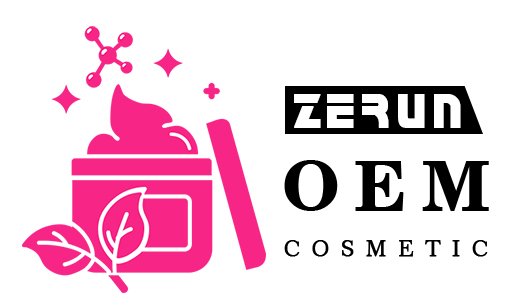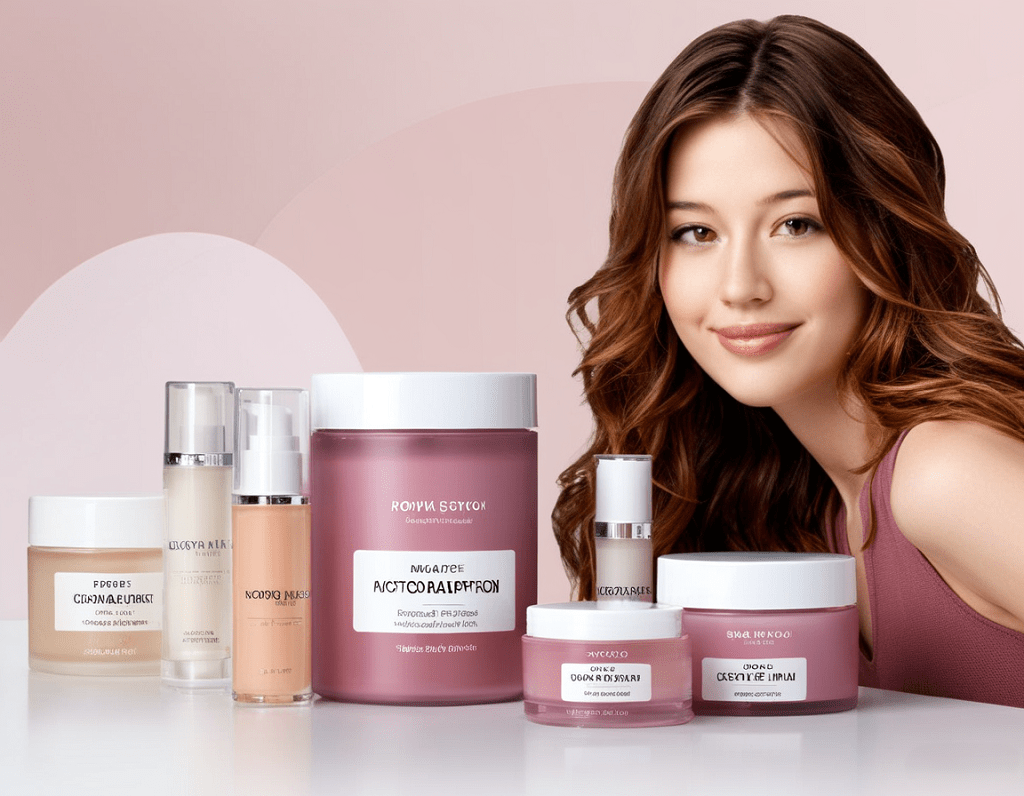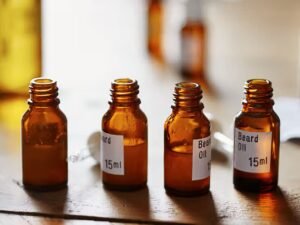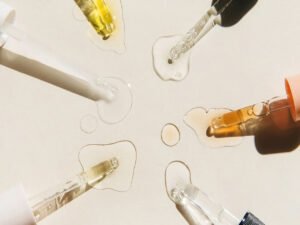The U.S. beauty industry is a diverse and fast-evolving landscape, with companies spanning a wide range of categories from luxury skincare to mass-market makeup. These top 20 cosmetics manufacturers lead the charge in innovation, sustainability, and consumer engagement. Here’s a deeper dive into each of these influential players shaping the future of beauty.
1. Estée Lauder Companies
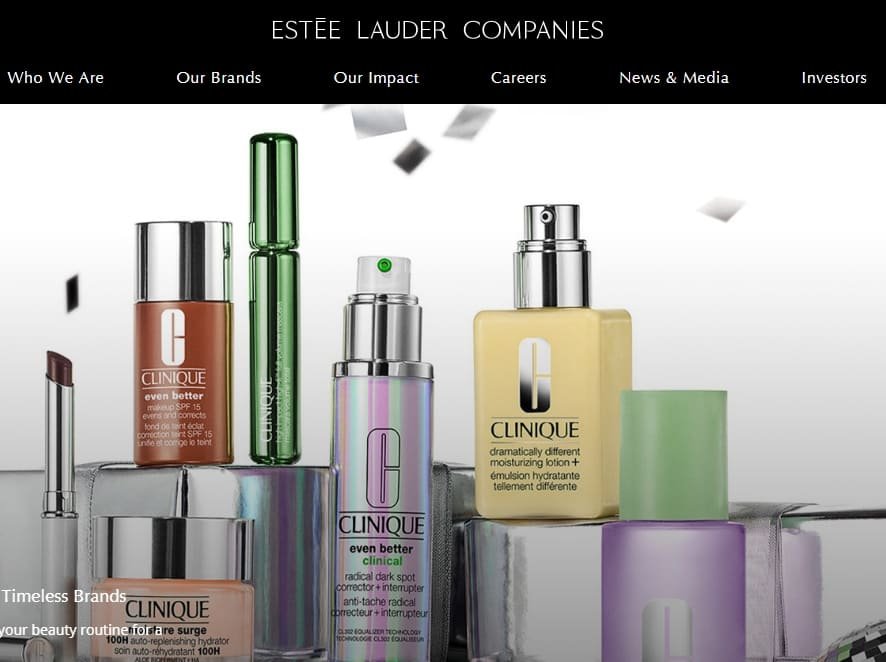
Estée Lauder is a leader in prestige beauty, offering a wide range of high-end skincare, makeup, and fragrances. With popular brands like MAC, Clinique, and La Mer, Estée Lauder leverages cutting-edge research to create effective anti-aging solutions and dermatologist-tested skincare. The company invests heavily in sustainable practices, aiming to make its packaging 100% recyclable by 2025. In 2025, Estée Lauder continues to refine its luxury offerings, providing personalized beauty experiences through AI-driven skin analysis and virtual try-ons.
2. L’Oréal USA
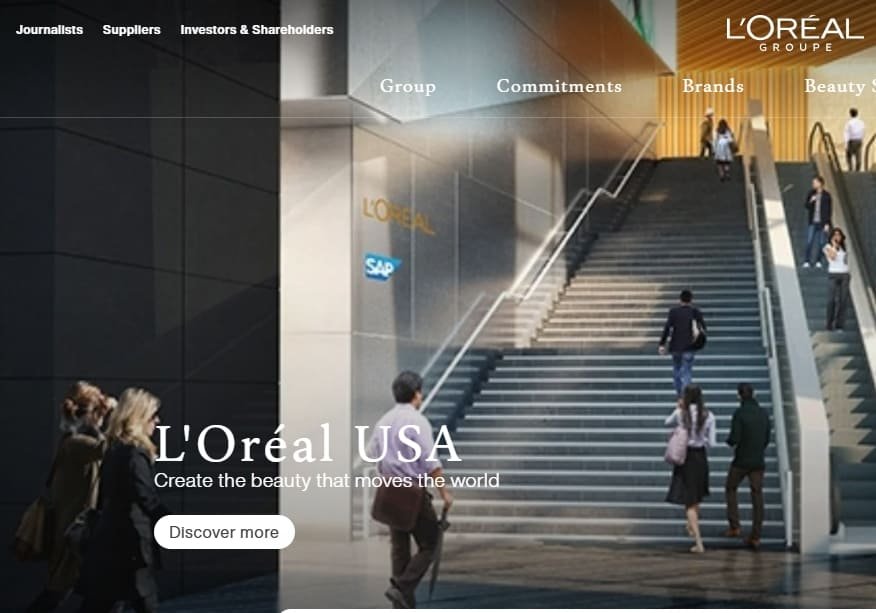
L’Oréal USA, a subsidiary of the French L’Oréal Group, is one of the most prominent names in global beauty. Its portfolio includes mass-market names like Maybelline and Garnier, as well as high-end brands such as Lancôme and Kiehl’s. L’Oréal USA is known for its continuous research into new ingredients and dermatologically tested products. The company’s sustainability initiatives include reducing water consumption in manufacturing and transitioning to more eco-friendly packaging. L’Oréal also emphasizes inclusivity with a wide range of shades for diverse skin tones.
3. Procter & Gamble (P&G) Beauty
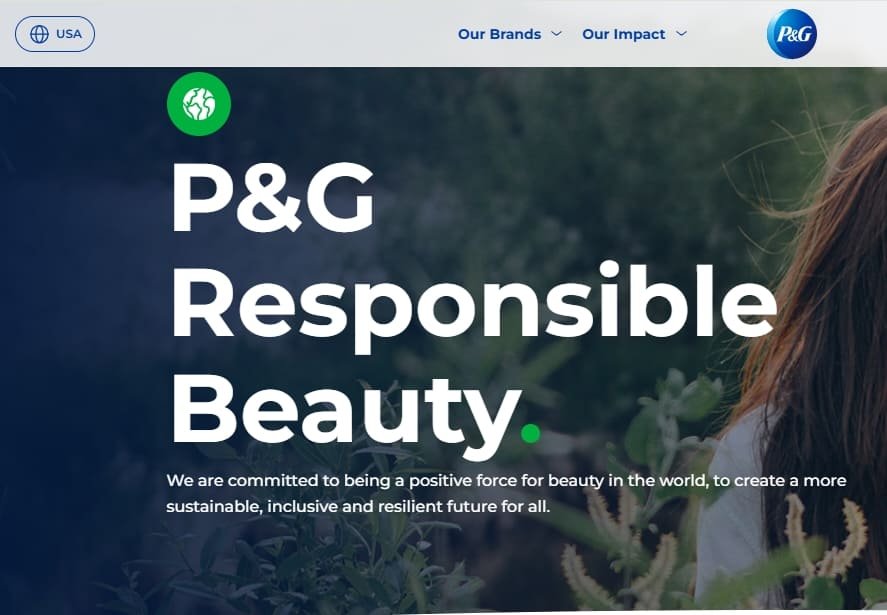
P&G Beauty, with iconic brands like Olay, Pantene, and SK-II, is renowned for its consumer-centric approach. P&G invests heavily in innovation and science, making it a leader in anti-aging skincare and hair care. The company focuses on clinically tested, high-performance products designed to meet diverse skin and hair care needs. In addition to its focus on research, P&G is committed to reducing environmental impact by improving water usage efficiency and working towards 100% recyclable packaging by 2030.
4. Coty Inc.
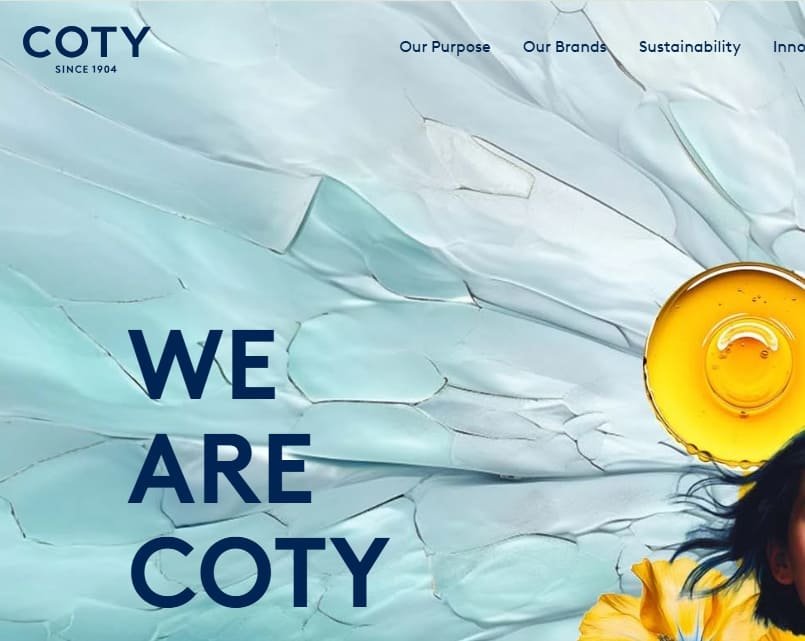
Coty has established itself as a key player in both mass-market and luxury beauty. With brands like CoverGirl, Rimmel, and Gucci Beauty, Coty caters to a wide array of consumers. The company is expanding its offerings in clean beauty, providing eco-friendly, cruelty-free products. Coty is deeply focused on sustainability, with initiatives like using renewable energy in manufacturing and packaging its products with recyclable materials. The company also leverages advanced technologies to meet the needs of a modern, beauty-conscious audience.
5. Johnson & Johnson Consumer Health
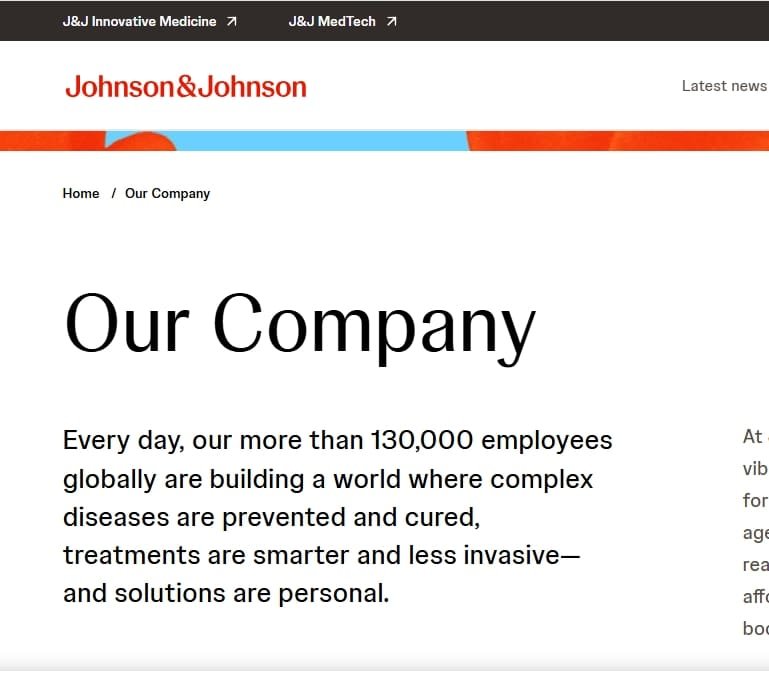
Johnson & Johnson’s beauty division, which includes skincare brands like Neutrogena and Aveeno, is known for providing gentle, dermatologist-approved products. J&J emphasizes creating formulations that are effective yet safe for even the most sensitive skin. The company continues to lead the charge in sun protection with scientifically-backed sunscreens and strives to reduce its environmental footprint. Their commitment to sustainability includes an emphasis on eco-friendly packaging and sustainable sourcing of ingredients.
6. Revlon Inc.
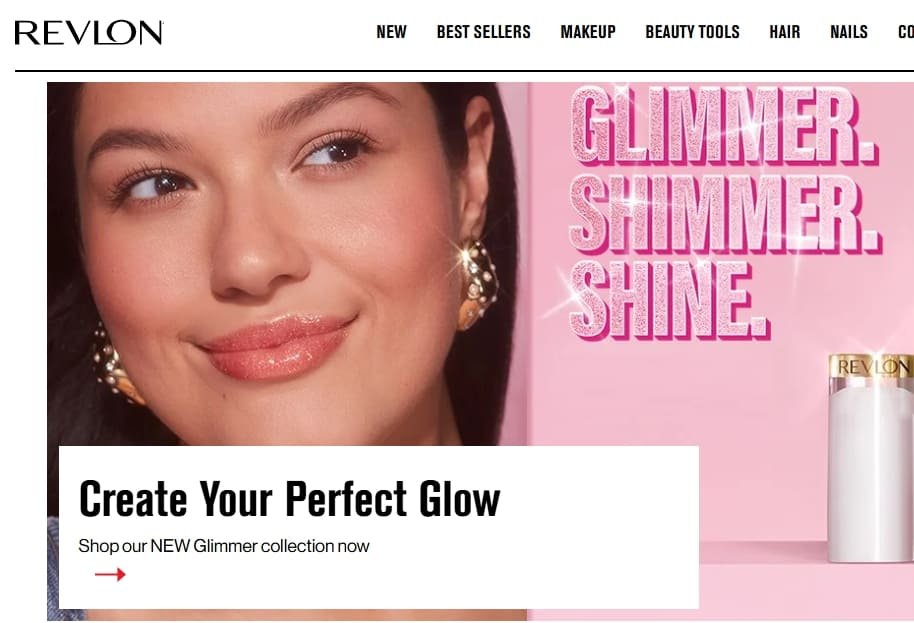
Revlon is a household name known for its color cosmetics and affordable skincare products. The brand’s ColorStay foundation and Super Lustrous lipsticks are beloved for their performance. Revlon is also deeply committed to addressing the needs of today’s consumers by creating products free from parabens and sulfates, promoting cleaner formulations. Additionally, the company is improving its sustainability efforts, focusing on reducing plastic waste and increasing the use of recyclable materials in packaging.
7. Mary Kay Inc.
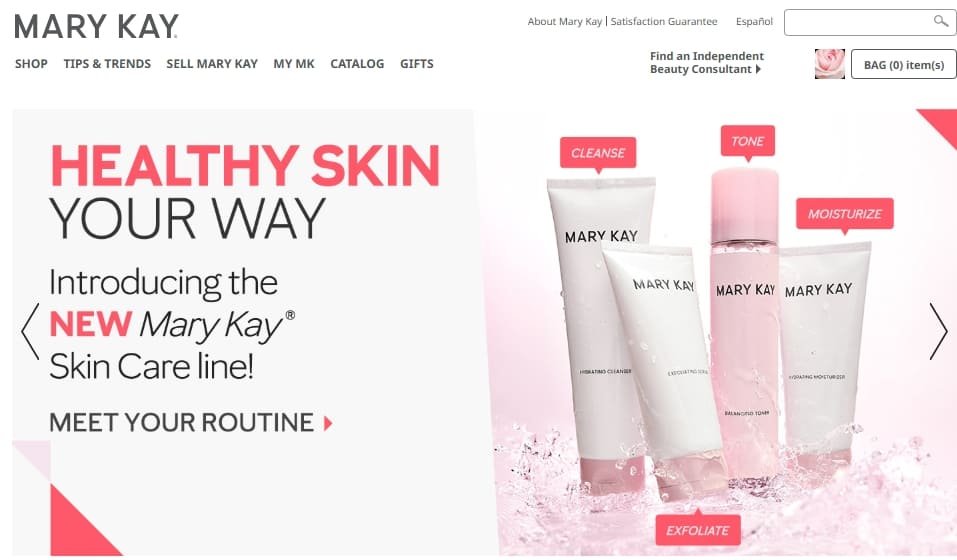
Mary Kay operates through a direct-selling model, empowering beauty consultants to sell products like the TimeWise skincare line. With a focus on skincare, cosmetics, and wellness, Mary Kay has built a loyal consumer base that values personalized service. The company is also at the forefront of corporate social responsibility, funding initiatives for women’s empowerment and supporting community development projects. Mary Kay’s cruelty-free products and eco-friendly packaging align with modern beauty consumers’ ethical values.
8. Amway
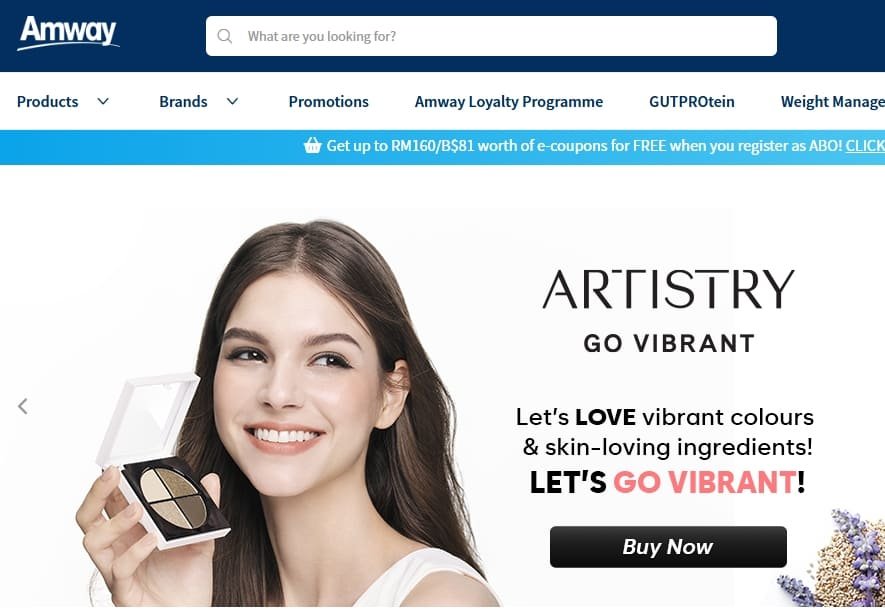
Known for its direct-selling model, Amway offers products like Artistry skincare, which blends luxury with science. Artistry products are renowned for using advanced botanicals and innovative ingredients, catering to a more sophisticated skincare audience. Amway is also keen on sustainability, with its initiatives focusing on reducing water usage in production and creating products with more natural, renewable ingredients. The company is committed to carbon-neutral production and promotes recycling initiatives across its global operations.
9. Unilever USA
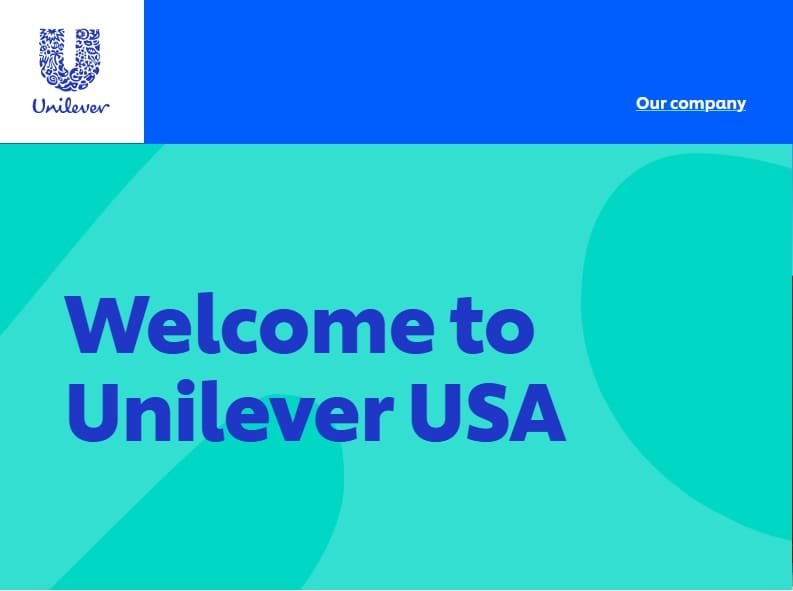
Unilever USA ncompasses a wide range of beauty and personal care brands, including Dove, TRESemmé, and Degree. Dove, in particular, stands out for its Real Beauty campaign, which promotes body positivity and inclusivity. Unilever is also a leader in sustainability, aiming to reduce its plastic waste and improve the recyclability of its packaging. With a goal to halve its use of virgin plastic by 2025, Unilever is setting a high standard for other manufacturers in the industry.
10. Avon (now part of Natura & Co.)
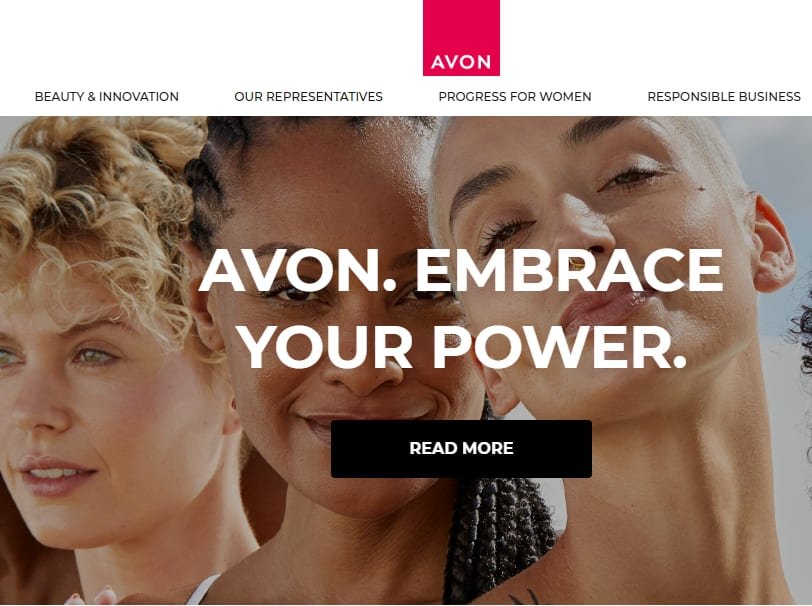
Avon has long been a global leader in beauty, known for its wide range of affordable skincare, makeup, and fragrance products. Now a part of Natura & Co., Avon has shifted its focus to natural beauty, offering products that use plant-based ingredients. The brand has become increasingly eco-conscious, with a commitment to eliminating animal testing and using sustainable, biodegradable ingredients in its formulations.
11. Shiseido Americas
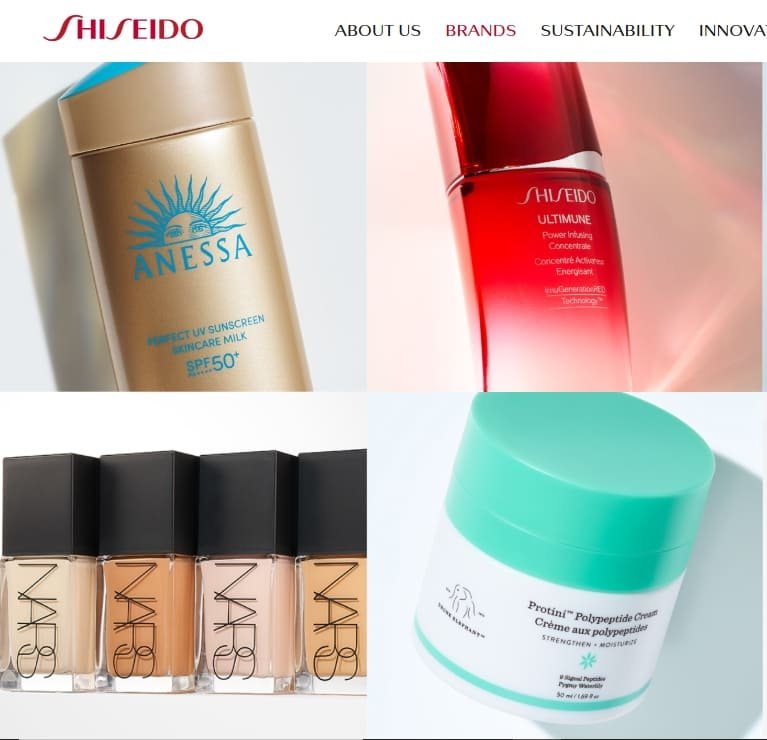
Shiseido Americas focuses on luxury skincare and makeup, offering iconic products like NARS and Shiseido. The company is known for its dedication to Japanese beauty traditions while incorporating the latest scientific research. Shiseido’s products often feature rare, high-quality ingredients like rice bran and camellia oil. Sustainability is a priority for Shiseido, with the company working to reduce its carbon footprint and improve its packaging, all while supporting charitable initiatives in skin cancer research and education.
12. Colgate-Palmolive
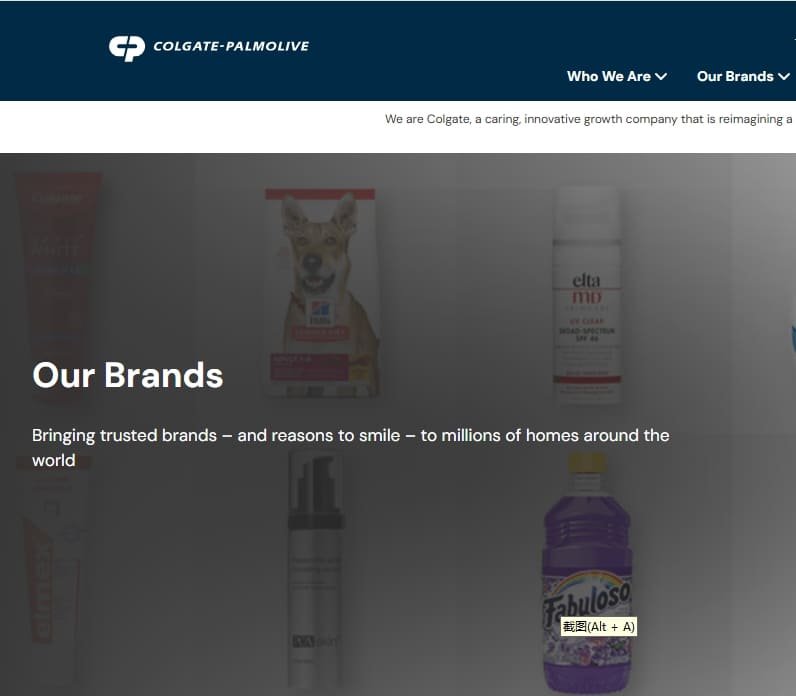
Although traditionally known for its oral care products, Colgate-Palmolive has successfully expanded into skincare and personal care with brands like Palmolive Naturals. The company emphasizes the use of natural ingredients and dermatologically tested formulations. Colgate-Palmolive’s sustainability goals include reducing water usage, enhancing waste management, and ensuring their packaging is recyclable by 2025.
13. Kylie Cosmetics (Coty)
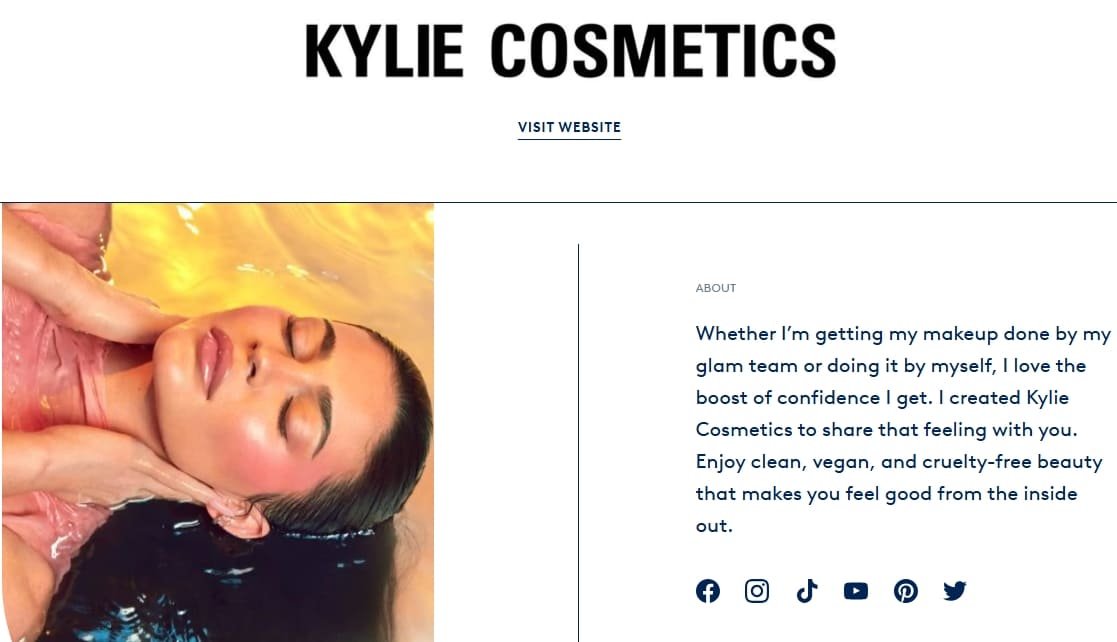
Founded by celebrity influencer Kylie Jenner, Kylie Cosmetics has quickly grown into a major player in the beauty industry. Known for its iconic Lip Kits, the brand focuses on offering products that cater to modern beauty needs with easy-to-use formulations and bold colors. Backed by Coty, Kylie Cosmetics is expanding into skincare with its Kylie Skin line, which emphasizes hydrating and nourishing products. Sustainability efforts include using eco-friendly packaging and cruelty-free products.
14. e.l.f. Cosmetics
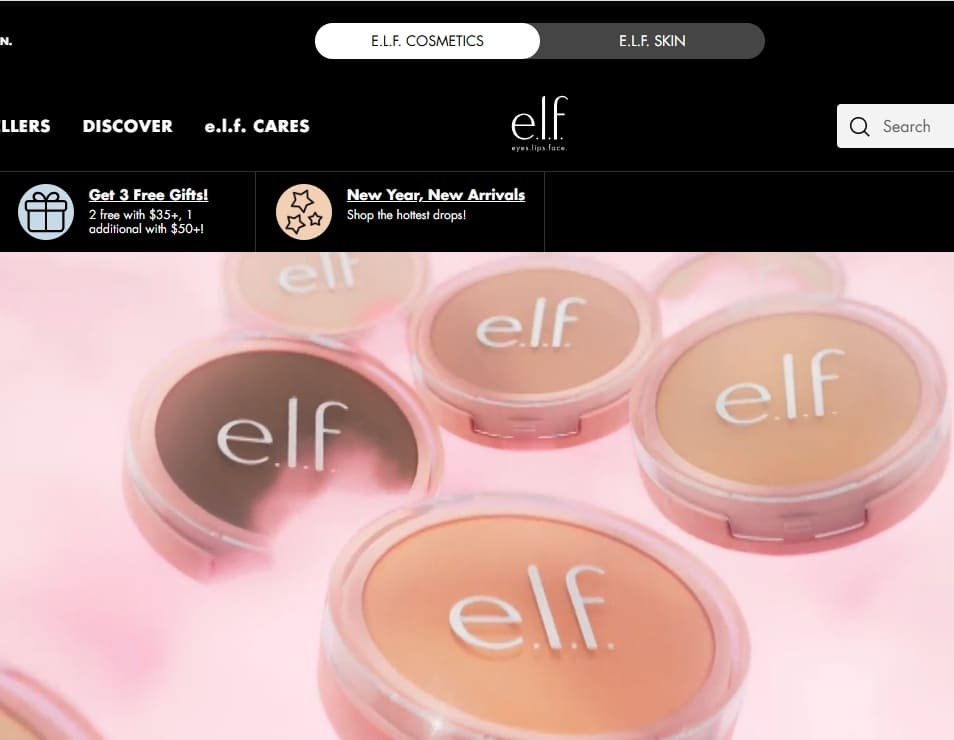
e.l.f. Cosmetics offers high-quality, affordable beauty products that cater to a wide range of skin tones and types. Known for its Poreless Putty Primer and innovative Vegan Lipstick range, e.l.f. is committed to creating cruelty-free, vegan products that are free from harmful chemicals. The brand is deeply involved in sustainability efforts, including producing products with recyclable materials and reducing its environmental footprint.
15. Too Faced (Estée Lauder)
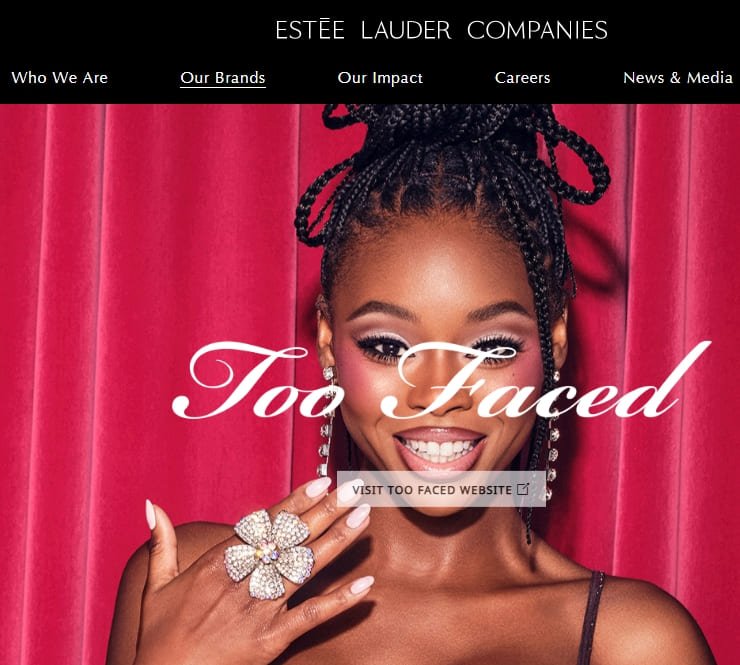
Too Faced is famous for its fun, whimsical approach to beauty, offering products like its Born This Way foundation and eye-catching Better Than Sex mascara. With a strong commitment to cruelty-free formulations, Too Faced is also increasingly focusing on sustainability by transitioning to eco-friendly packaging. The brand continues to embrace diversity, offering a wide range of shades to cater to every skin tone.
16. Anastasia Beverly Hills
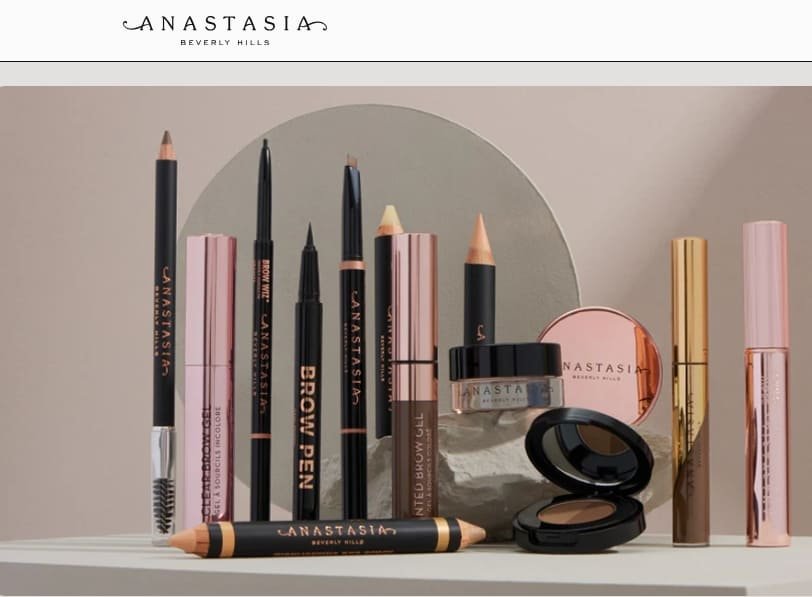
Founded by makeup artist Anastasia Soare, Anastasia Beverly Hills revolutionized brow makeup with products like the Brow Wiz pencil. The brand has since expanded into contouring and eyeshadows, making it a favorite among beauty enthusiasts. Known for its commitment to inclusivity, Anastasia offers a diverse range of shades across its product lines. The brand continues to innovate in both product formulations and packaging, ensuring a clean and sustainable approach.
17. Glossier
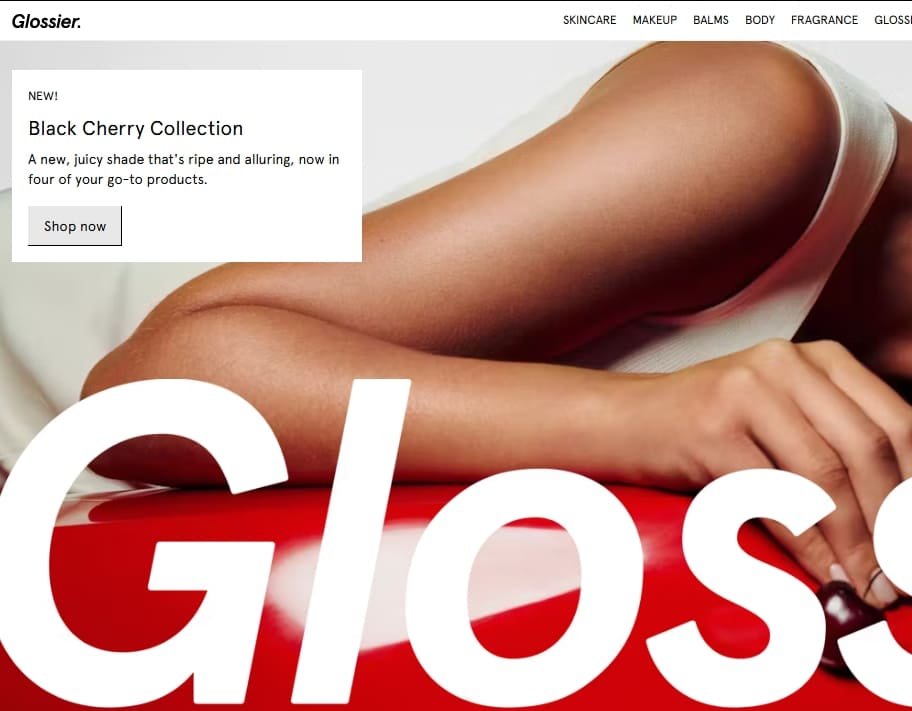
Glossier is a direct-to-consumer brand that emphasizes a minimalist, skin-first approach to beauty. With its signature Boy Brow and Glossier Priming Moisturizer, the brand has become synonymous with effortless beauty. Glossier prioritizes clean beauty formulations, offering products free from parabens, sulfates, and phthalates. Its dedication to sustainability includes using recyclable materials in packaging and investing in renewable energy for its operations.
18. Beiersdorf Inc.
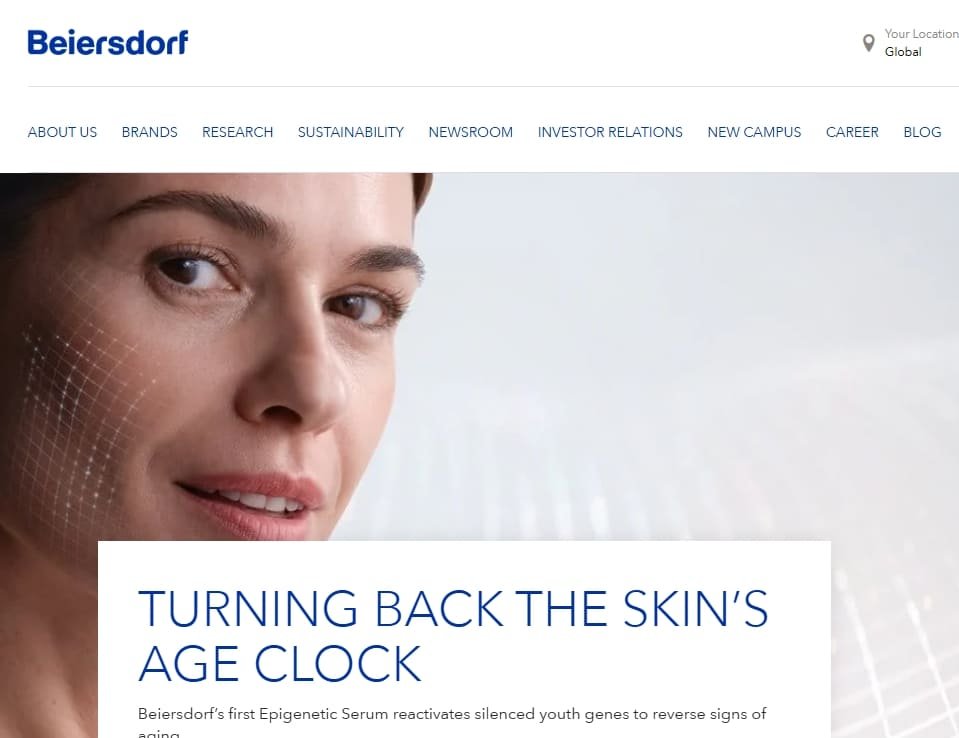
Best known for Nivea, Beiersdorf offers gentle, effective skincare products that cater to a wide range of needs. The company’s focus is on hydration and skin protection, and its Eucerin line is particularly favored for sensitive skin. Beiersdorf has set ambitious sustainability goals, including reducing CO2 emissions and using more renewable materials in its packaging.
19. Huda Beauty
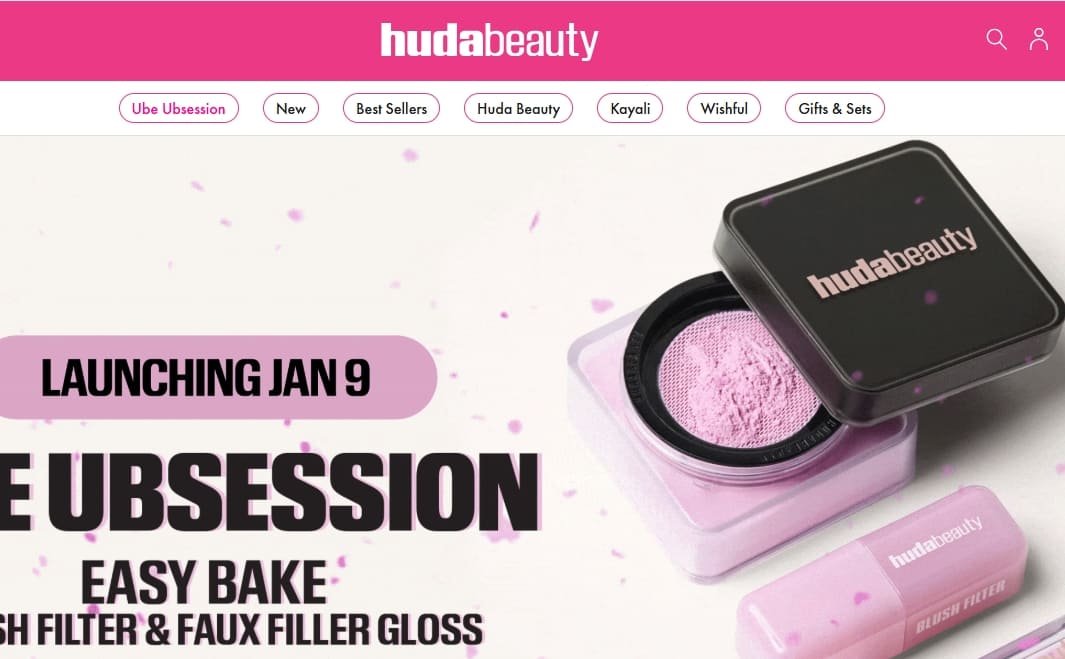
Huda Beauty, founded by makeup artist Huda Kattan, has gained a global following thanks to its high-quality, highly pigmented products. Known for its luxurious packaging and diverse product offerings, Huda Beauty’s Faux Filter Foundation and Desert Dusk Palette are staples in the beauty community. The brand has expanded into skincare with its Wishful line, focusing on clean, effective formulations.
20. Moroccanoil
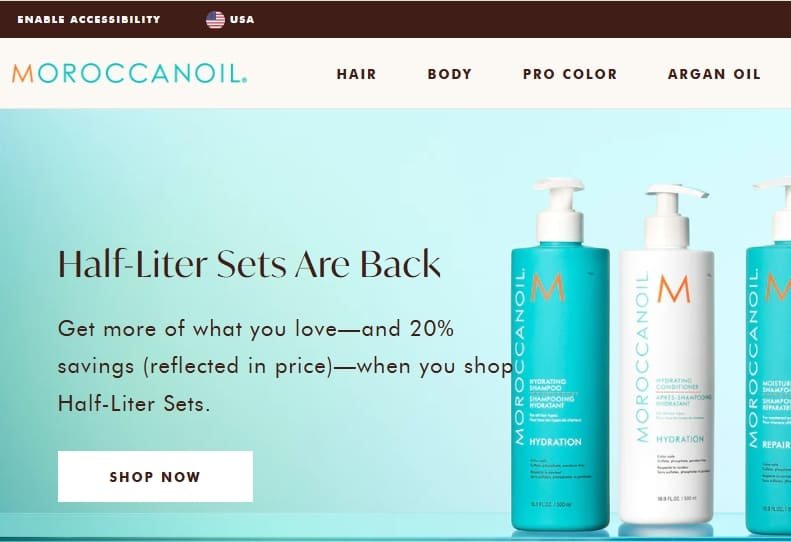
Moroccanoil pioneered the use of argan oil in hair care and skincare products. The brand’s rich, nourishing formulas are beloved for their ability to hydrate and repair. Moroccanoil continues to expand its line with products designed for both hair and skin, ensuring each formula remains effective, luxurious, and sustainable. The company is also focusing on eco-friendly packaging to reduce its environmental impact.
These 20 U.S.-based cosmetics manufacturers are at the forefront of beauty innovation, sustainability, and consumer engagement. Each of them brings something unique to the market, from cutting-edge skincare to inclusive makeup solutions, and they are all committed to making a positive impact on the world.
How to Choose the Right Cosmetic Manufacturer in the USA
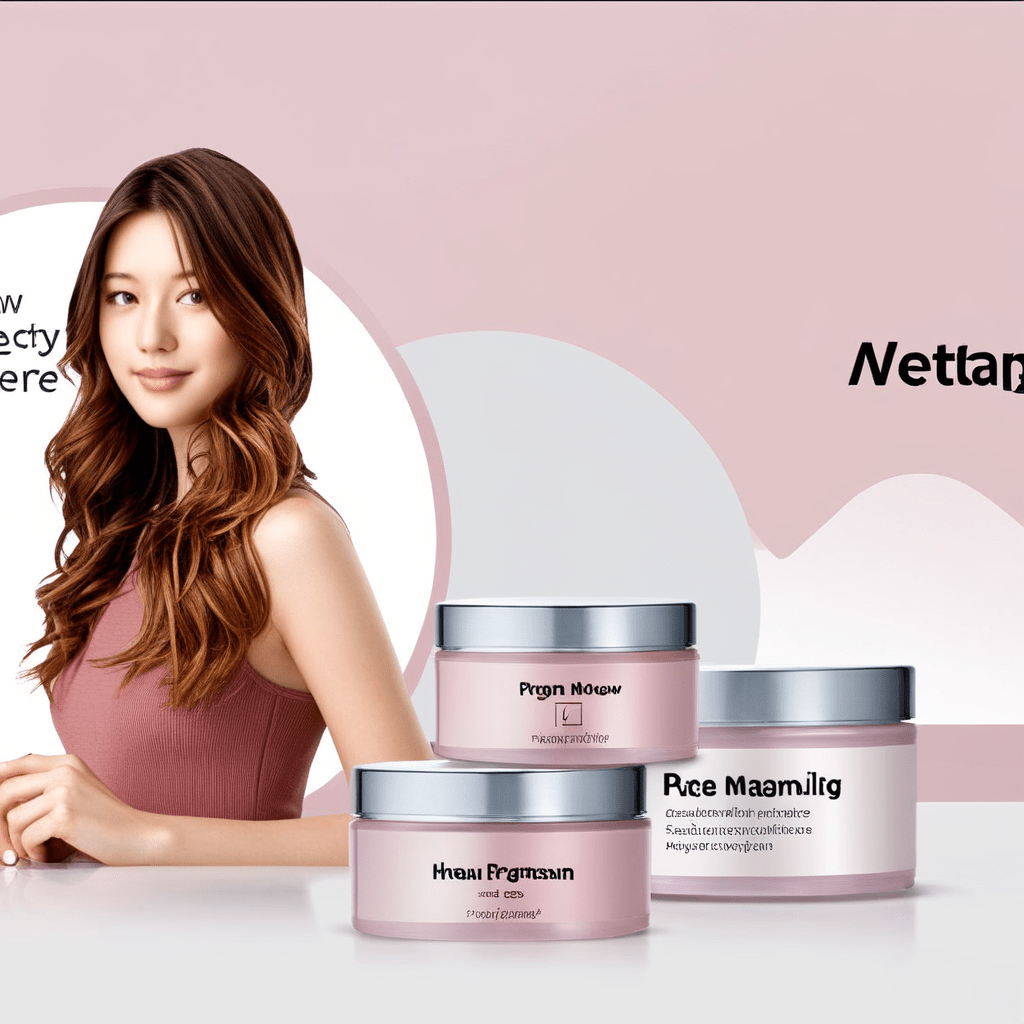
The cosmetics industry is fast-paced and highly competitive, where innovation and quality are key to standing out. If you’re an entrepreneur or business owner diving into beauty or skincare, finding the perfect cosmetic manufacturer is one of the most critical steps to success. Let’s break it down and explore what you need to know—plus why Zerun Cosmetics is worth your attention.
What Does a Cosmetic Manufacturer Actually Do?
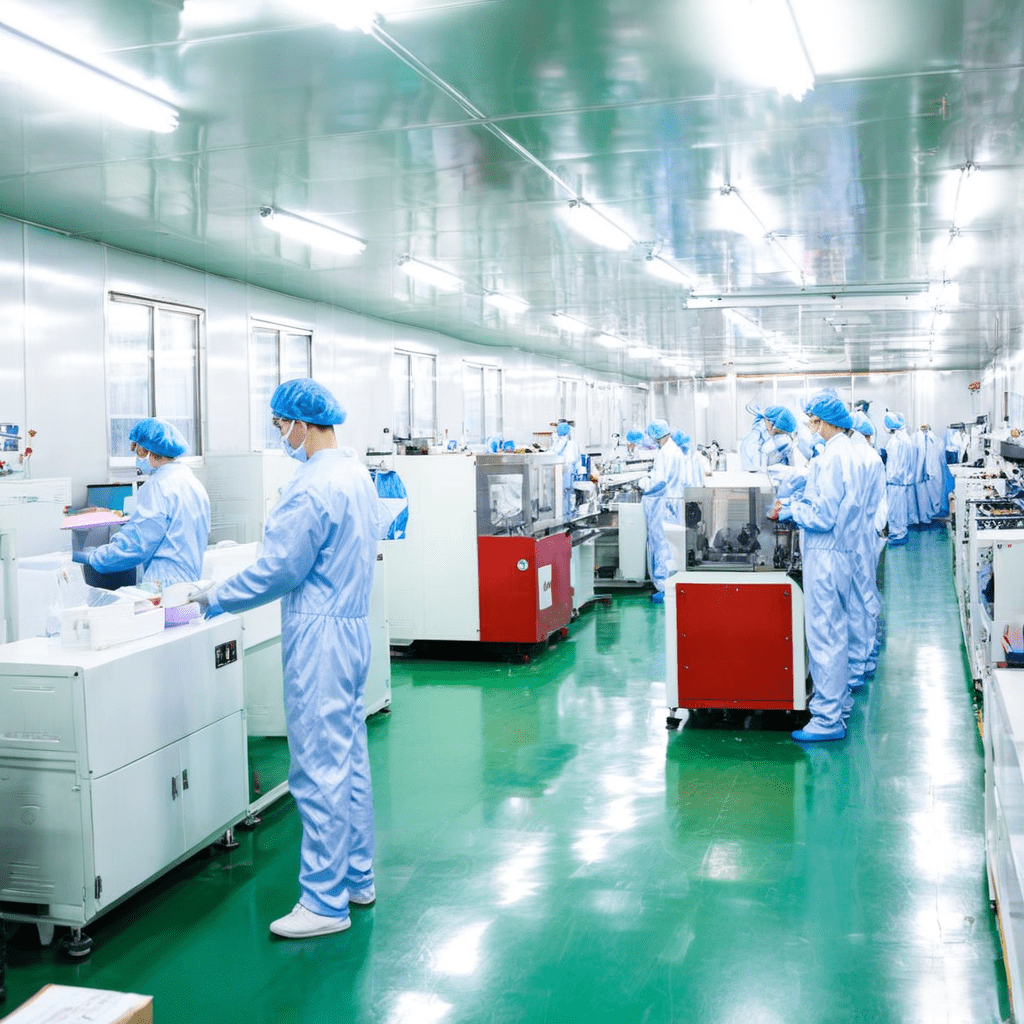
In simple terms, a cosmetic manufacturer is the backbone of your product creation. They handle everything from formulating and producing your skincare, makeup, or haircare products to ensuring they meet quality and safety standards. Here’s what they typically offer:
- Makeup: Products like foundation, blush, or lipstick that enhance your features.
- Skincare: Items designed to protect, hydrate, or improve your skin.
- Haircare: Shampoos, conditioners, and styling products to keep hair healthy and manageable.
- Fragrances: Perfumes or colognes that leave a memorable impression.
The best manufacturers don’t just make products—they blend science with creativity to ensure their formulations deliver both beauty and wellness benefits.
Why Is Choosing the Right Manufacturer So Important?
Think of your manufacturer as a partner, not just a vendor. They play a big role in:
- Guaranteeing product quality and safety.
- Maintaining your brand’s reputation.
- Helping you bring your vision to life.
Since they’re so pivotal, you can’t afford to settle for less than the best.
What to Look for in a Cosmetic Manufacturer
When evaluating potential partners, keep these key factors in mind:
-
Expertise and Reputation
Look for a manufacturer with years of experience in your specific niche—whether that’s skincare, makeup, or haircare. A great example is Zerun Cosmetics, which is widely recognized for its quality and innovation. Don’t forget to read reviews, check testimonials, and see if they’ve won any industry awards.
-
Manufacturing Capabilities
Can they handle the scale you need? Do they have cutting-edge technology and comply with industry regulations? Manufacturers like Zerun Cosmetics operate state-of-the-art facilities that follow Good Manufacturing Practices (GMP), ensuring top-notch products.
-
Customization Options
Every brand is unique. Make sure your manufacturer can customize formulas, packaging, and labeling to match your vision. Zerun Cosmetics specializes in private label services, helping you create products tailored to your brand. -
Quality Assurance
Consistent quality is non-negotiable. Choose a manufacturer that prioritizes rigorous testing and ingredient sourcing. With Zerun Cosmetics, every step is monitored to ensure your products are both safe and effective. -
Regulatory Compliance
The cosmetics industry has strict rules. Ensure your manufacturer adheres to FDA standards and other guidelines. Zerun Cosmetics is fully compliant, so you don’t have to worry about legal hiccups.
-
Ethical and Sustainable Practices
In today’s market, customers value eco-friendly and ethical practices. Does the manufacturer use sustainable materials? Do they minimize waste? Zerun Cosmetics checks all these boxes, making them a great choice for conscious brands.
What Services Do Cosmetic Manufacturers Offer?
Manufacturers typically go beyond production. Here are some additional services they might provide:
- Custom Formulation: Work with chemists to create unique, high-performing products tailored to your brand.
- Private Labeling: Quickly launch products under your own name without setting up a factory.
- Contract Manufacturing: Outsource production while maintaining control over branding.
- Third-Party Manufacturing: Get end-to-end services, including packaging, labeling, and logistics, for a hassle-free experience.
Why Zerun Cosmetics Stands Out
With a solid reputation, advanced facilities, and a focus on sustainability, Zerun Cosmetics is a top choice for businesses looking to make their mark in cosmetics. Partnering with them means you’re not just creating products—you’re building a brand that resonates with your audience.
Choosing the right cosmetic manufacturer is a big deal. It’s not just about finding someone who can produce your products; it’s about building a relationship with a partner who can help you grow. By focusing on expertise, quality, and shared values, you’ll set your brand up for long-term success.
Ready to make your vision a reality? Companies like Zerun Cosmetics make it easier than ever to launch products that wow your customers and elevate your brand.
